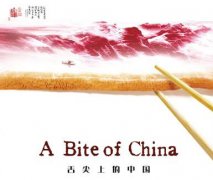这个春节 百万中国人出境扫货
编辑:高中作文网 阅读 次
They went for the luxurious caress of a French leather handbag (or several), the cathartic splash of a high-tech Japanese toilet’s bidet feature or the perfect selfie-stick pose in front of Bilbo Baggins’s round hobbit door, tucked into the lush hills of New Zealand.
他们出去,是为了体验一个(或好几个)法国皮手包的奢侈触感,享受具有坐浴盆特色的日本高科技坐便器的畅快淋漓,或是在霍比特人比尔博·巴金斯(Bilbo Baggins)隐藏于新西兰葱郁青山中的圆洞门前利用自拍架摆出完美造型。
More than five million Chinese were estimated to have traveled abroad over the Lunar New Year holiday that ended on Wednesday, a 10 percent increase over the year before and the first time Chinese tourists bound for foreign lands outnumbered those vacationing domestically, according to Xinhua, the state news agency. Flush with cash and wanderlust, over 60 percent of mainland Chinese who chose to travel during the holiday — eschewing the traditions of gathering at home with relatives to eat dumplings and watch the Communist Party’s propaganda-drenched Spring Festival Gala — preferred to get their passports stamped, surf uncensored Internet sites and fill their suitcases with souvenirs.
官方媒体新华网报道,本周三结束的春节假日期间,出国旅游的中国游客人数估计超过了500万,同比增长10%,出境游人数首次超过国内游人数。不少大陆人选择在春节期间出游,避开与亲人在家吃饺子、观看充满共产党宣传意味的春节联欢晚会的传统。由于资金充裕,旅游意愿又旺盛,其中60%的人更青睐跨出国门,畅通无阻地上网,往箱子里塞满纪念品。
Li Zhao, 24, who works for a candy company in Beijing, took her family to Bali, Indonesia, for their first overseas vacation together. On the island they went white-water rafting, rode elephants and watched dolphins — along with masses of other mainland Chinese. “Almost all of the big tour buses I saw there had Chinese characters on them,” she said.
24岁的李昭(音)在北京一家糖果公司工作,带着家人到印度尼西亚的巴厘岛度假。这是他们全家首次集体出国度假。他们在巴厘岛玩激流漂流,骑大象,看海豚——周围有很多同样来自中国大陆的游客。“我在那里看到的几乎所有旅游大巴上都有汉字,” 她说。
Like a weeklong version of Black Friday in the United States, the Lunar New Year holiday is increasingly known for astounding displays of conspicuous consumption by Chinese traveling abroad. The China Tourism Academy estimated that Chinese tourists shelled out more than 140 billion renminbi, or $22 billion, during the holiday, Xinhua reported. The weakening yen and euro provided an additional lure to Chinese shoppers.
就像是美国黑色星期五的加长版,为期一周的春节假期越来越出名的地方在于,中国出境游客令人瞠目结舌的炫耀性消费行为。新华网的报道称,中国旅游研究院估计,中国游客在春节期间的花费超过了1400亿元人民币。日元和欧元的疲软对于中国购物者来说是一种额外的诱惑。
In Tokyo, Chinese tourists cleaned out shelves of mechanized toilet seats, digital cameras and rice cookers, according to People’s Daily, the Communist Party mouthpiece. On Sunday, a 27-year-old Chinese woman spent more than $300,000 on clothes, jewelry, cosmetics and a $45,000 Cartier watch at a South Korean mall, the Chosun Ilbo newspaper reported. An online Chinese shopping guide for Thailand recommended buying crocodile leather goods, snake medicine and visiting a tailor shop in the Holiday Inn Bangkok that supposedly helped outfit foreign leaders with suits and shirts for a diplomatic summit meeting.
共产党喉舌《人民日报》报道,在东京的中国游客将机械化马桶座圈、数码相机及电饭锅抢购一空。韩国的《朝鲜日报》(Chosun Ilbo)则报道,一名27岁的中国女性周日在当地的一家商场花费逾30万美元(约合188万元人民币)购买了服装、珠宝、化妆品和一块售价4.5万美元的卡地亚(Cartier)手表。网上的一份中文版泰国购物指南建议游客购买鳄鱼皮具和蛇药,前往曼谷假日酒店(Holiday Inn Bangkok)的裁缝店——据说这家店曾为参加外交峰会的外国领导人提供西装和衬衫。
Yet even as countries have clamored to profit from the Chinese travel bug by loosening visa restrictions and hiring Mandarin-speaking sales clerks, Chinese tourists are finding that money does not always buy love abroad, including from other Chinese.




